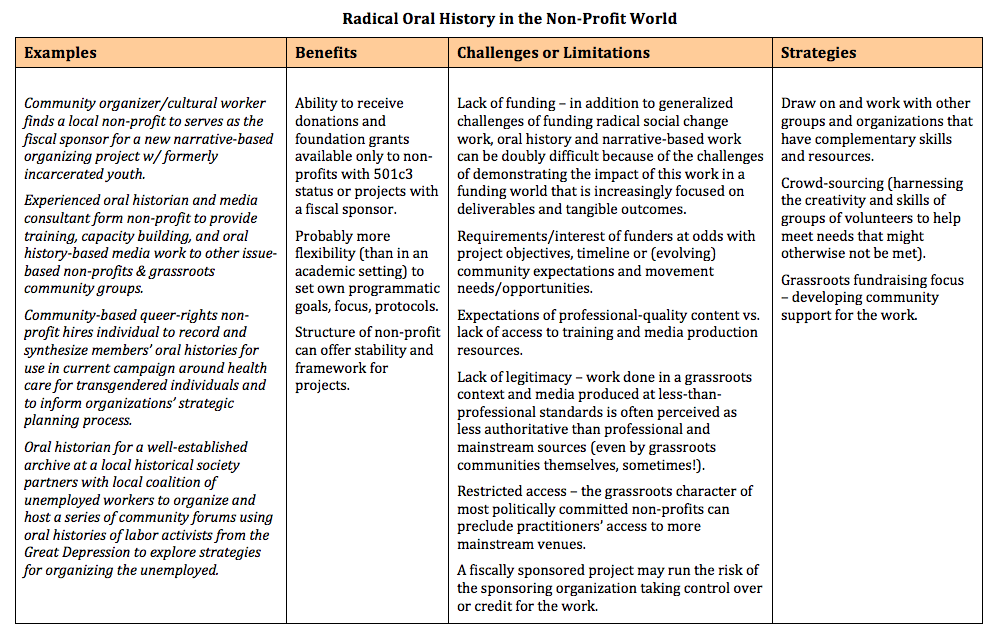Finding a Home
The work of most Groundswell participants operates at the margins of many established and emerging fields, combining the practice of oral history with the techniques and principles of community organizing, ethnography, digital storytelling, public and community-based history, participatory action research, and popular education. Similarly, Groundswell participants do this work within and at the intersections between many different kinds of structures, ranging from almost completely unorganized, informal communities to highly structured institutions.
And so, the ethical and practical dynamics of practitioners’ positionality—understood in this context as the relationship of the oral historian or practitioner to the institutions and communities with or within which we work—was a third and recurring theme of our discussions. Primary “homes” for Groundswell participants’ radical oral history work include:
- Academic institutions (as professors, as students, and as non-faculty program staff)
- Non-profit organizations (as founders/executive directors, staff, consultants, or interns), including:
- Ostensibly apolitical, well-resourced public institutions (such as historical societies)
- “Scrappier,” more explicitly political and less-resourced social movement organizations, and
- Organizations fitting somewhere in between
- Community-based groups or grassroots communities (as members or as allies and acting as volunteer or freelancers/paid consultants)
Practitioners encounter unique benefits and limitations of trying to do radical and applied oral history work from within each of these spaces, as summarized in the following charts:1
But for any given project or practitioner the lines here are often blurred: many base-building or membership-based non-profits describe themselves as grassroots or community-based; there are interesting examples of academic-community partnerships; some non-profits have been set up primarily to facilitate narrative and oral history projects with other community groups or non-profits; and a student may find an internship with a local non-profit that supports them in doing oral history work within their own community. This reality underscores the significance of another theme prominent in the Groundswell discussions: partnerships. How we build them, sustain them, nurture them and maintain them came up in many groups’ conversations. A sampling of quotes from the Production & Distribution small group conversation points to just a few of the main issues:
- Maggie Schreiner describes the process of negotiation around project goals with a partner organization. She also reflects on the significance of which of the partners (she or the organization) initiated the project:
- Rachel Falcone and Kelly Creedon compare how and how long it took for partnerships to develop in various projects, and how they were able to convey the value of oral history and the media it can generate to their partners’ organizing:


